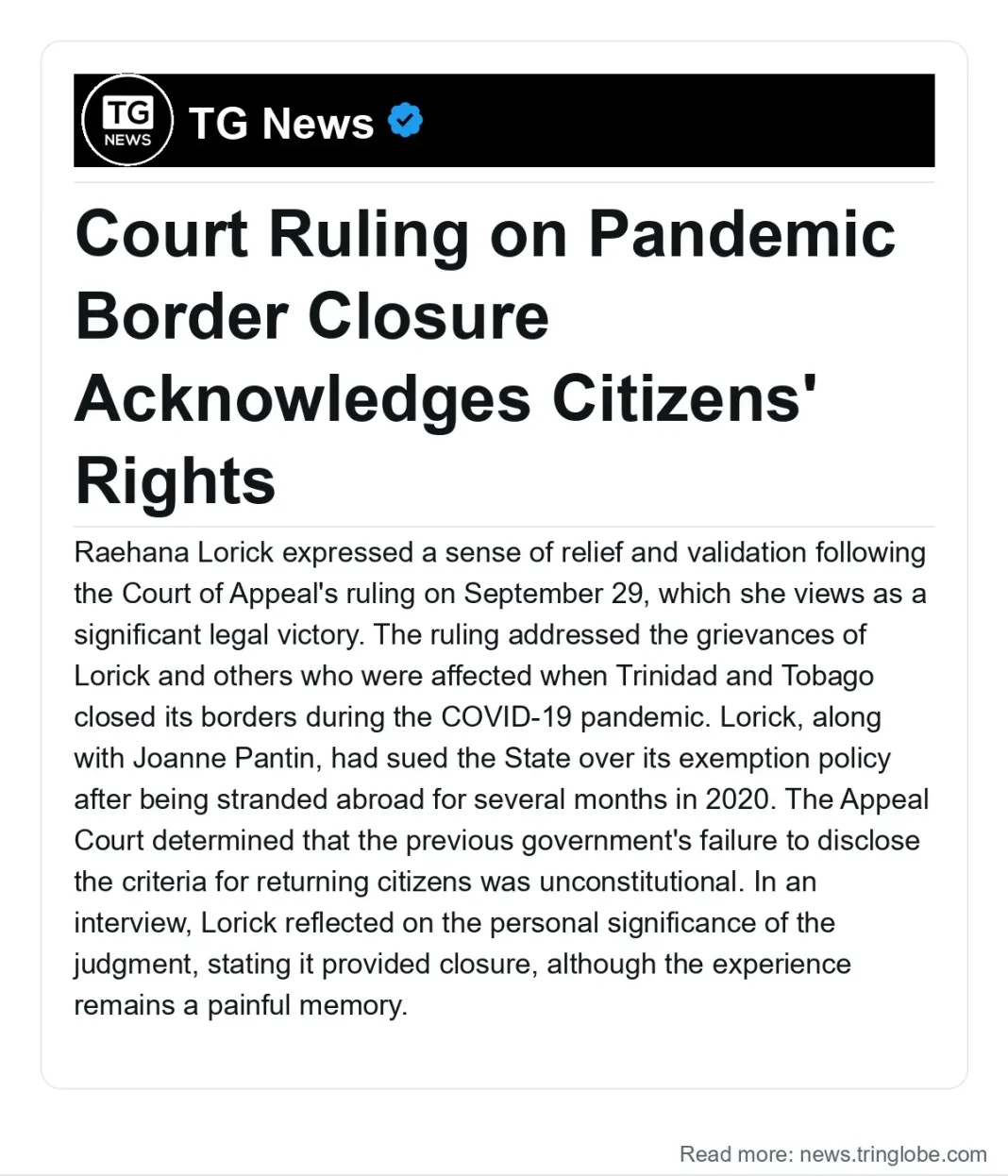This report covers trinidad tobago: court ruling with key details and context.
This report covers trinidad tobago: court ruling with key details and context.
Raehana Lorick expressed a sense of relief and validation following the Court of Appeal’s ruling on September 29, which she views as a significant legal victory. The ruling addressed the grievances of Lorick and others who were affected when Trinidad and Tobago closed its borders during the COVID-19 pandemic. Lorick, along with Joanne Pantin, had sued the State over its exemption policy after being stranded abroad for several months in 2020.
The Appeal Court determined that the previous government’s failure to disclose the criteria for returning citizens was unconstitutional. In an interview, Lorick reflected on the personal significance of the judgment, stating it provided closure, although the experience remains a painful memory. She emphasized that her fight was not solely for her own situation but for all nationals who faced similar hardships during the border closures.
Lorick described the months of uncertainty and financial strain as “incredibly hard and stressful,” highlighting the emotional toll of being denied access to her home. The court’s ruling serves as a reminder of the importance of protecting citizens’ rights, even during emergencies. The unanimous decision by the Justices of Appeal underscored the need for accountability in government actions that infringe on constitutional rights.
trinidad tobago: court ruling: key developments so far.
Former attorney general Anand Ramlogan, who represented Lorick and Pantin, characterized the ruling as a pivotal moment in Trinidad and Tobago’s legal history, reinforcing the principles of liberty and freedom of movement. The court has ordered the state to pay damages for the rights violations, but for Lorick, the ruling signifies that their experiences were acknowledged and that future actions must prioritize citizens’ rights.
The case has drawn attention to the broader implications of government policies during crises, particularly regarding transparency and the treatment of citizens. As nations navigate the complexities of public health emergencies, the balance between safety measures and individual rights remains a critical issue. The ruling may influence future policies and legal standards concerning citizens’ rights during emergencies.
In light of the ruling, discussions surrounding the government’s approach to border control and citizen access are expected to continue. Advocates for civil liberties may use this case as a reference point in their efforts to ensure that citizens are treated fairly and justly, regardless of the circumstances. The court’s decision may also encourage other individuals who have faced similar challenges to seek legal recourse.
As the nation reflects on the implications of this ruling, the experiences of those affected by the pandemic border closures serve as a reminder of the importance of safeguarding individual rights. The legal victory for Lorick and Pantin may pave the way for more robust protections for citizens in the face of government actions that could infringe upon their freedoms.


